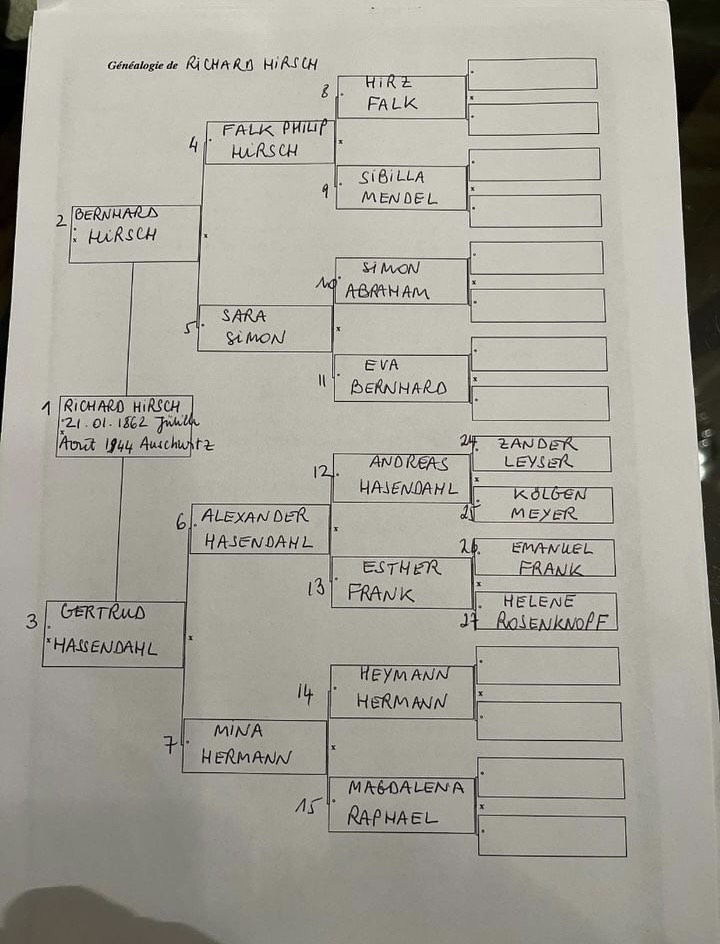Richard HIRSCH
Born on January 21, 1862 in Juliers in the North Rhine-Westphalia region of Germany, Richard Hirsch came from a long-established family. His parents were Bernard Hirsch and Gertrude Hasendahl. He did well in school and went on to study law, which subsequently led him to move to Paris to further his career. When he arrived in the French capital, Richard found a job with his cousin, Édouard Fleck, who was a highly respected banker. Despite his conscientious and rigorous approach to his work, Richard was not happy in the profession and later advised his son, Étienne, not to follow in his footsteps.
On January 25, 1900, Richard married Marianne Schwank, who came from a well-educated, well-to-do family. They went on to have three children: Étienne Bernard Hirsch, who was born on January 24, 1901, Madeleine Melese Hirsch, born on March 14, 1902, and Jacqueline Lévy, born on January 24, 1910. The family set up home at 119 rue de la Faisanderie, in the 15th district of Paris. Richard, who was naturalized as a French citizen on November 11, 1899, was a duty-driven man, torn between his professional commitments and his family and personal interests.
Outside of work, Richard Hirsch drew great solace from music. A keen amateur pianist, he spent much of his Sundays playing the piano, often together with his children. His favorite composer was Mozart, and Richard enjoyed sharing the beauty of his music with the family, forming a special bond between them. His love of music was his way of escaping the monotony of his job as a banker and instilling the importance of culture and the arts in his children.
Richard Hirsch’s life took a tragic turn during the Second World War. On July 19, 1944, he was arrested and interned in Drancy, a transit camp for Jews who were to be deported from France. On July 31, 1944, he was deported to Auschwitz, a concentration and extermination camp in Poland. Richard died there on August 15, 1944, a victim of the horror that was the Holocaust. His death certificate, which was issued in Paris on June 17, 1946, states how and where he died.
After the war, Richard’s daughter, Jacqueline Lévy, who lived at 2 rue Maurepas in Versailles, applied to have her father recognized as having been deported for political reasons. She wrote to the Ministry of Veterans and Victims of War, emphasizing that Richard had sacrificed his life and seeking official acknowledgement of his suffering and martyrdom. Although Richard Hirsch never won a medal for his part in the war, he was posthumously granted the status of “deportee politique”, or political deportee, which, for his family, was a belated but meaningful tribute to his memory.
The file on Richard Hirsch, reference number 5000779, contains a number of essential records, including confirmation that he had been naturalized as a French citizen, which adds an official dimension to his story. His life, characterized by a balance between professional obligations and his love of music and which came to such a tragic end, remains a poignant testimony to the ordeal that so many families endured during this grim period in history.


 Français
Français Polski
Polski








